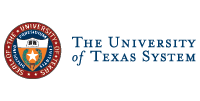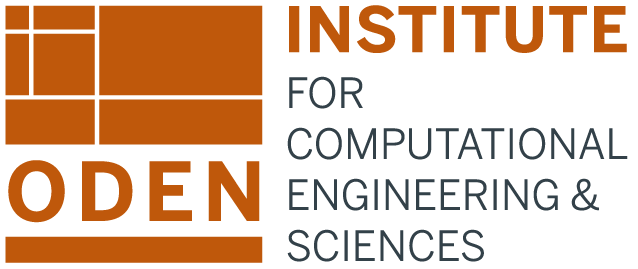
Building a world-leading cooperative research and education program in Oncological Data and Computational Science to accelerate progress against cancer



The University of Texas MD Anderson Cancer Research Center, The Texas Advanced Computing Center (TACC) and the Oden Institute are collaborating in oncological data and computational science research. The strategic initiative creates a unique opportunity to align mathematical modeling and advanced computing methods with oncology expertise to bring forward new approaches that can improve outcomes for patients with unmet needs. Bringing together MD Anderson’s oncology expertise and data with novel mechanism-based computational modeling and data science techniques led by researchers at the Oden Institute and TACC, this partnership supports not just cancer research but also the training and development of teams that will lead computational oncology research into the future.



The following fifteen seed projects bring together researchers from eight different units at UT Austin and eight different departments at MD Anderson.
Integrating machine learning-based histopathology with biology-based models of high-grade glioma growth and response to radiotherapy
David Hormuth, research scientist at the Center for Computational Oncology at the Oden Institute, and David Fuentes, associate professor of Imaging Physics at MD Anderson, are utilizing machine learning and mathematical modeling to predict tumor growth and treatment response in high-grade gliomas. Their project aims to enhance precision in glioma treatment through computational innovations.
Computational and preclinical modeling to predict liver growth in patients with liver malignancy undergoing portal vein blockade
Edward Castillo, affiliated faculty at the Oden Institute and associate professor of biomedical engineering at UT's Cockrell School of Engineering, along with Steven Huang and Marites Melancon, professors of Interventional Radiology at MD Anderson, are developing an automated and robust computational model using liver perfusion images to assess liver hypertrophy after portal vein embolization.
Fast comprehensive 3D imaging of rectal cancer
Jon Tamir, affiliated faculty at the Oden Institute and assistant professor of electrical and computer engineering at UT's Cockrell School of Engineering, Gaiane Rauch, professor of Diagnostic Radiology at MD Anderson, and Ken-Pin Hwang, associate professor of Imaging Physics at MD Anderson, are pioneering a machine learning-based technique for faster, comprehensive 3D magnetic resonance imaging (MRI) of rectal cancer. Their eventual goal aims to reduce scan times and alleviate radiologists' workloads.
Predicting local rectal tumor relapse in patients receiving non-operative management
Jack Virostko, affiliated faculty at the Oden Institute and associate professor of Diagnostic Medicine at Dell Medical School, and Venkateswar Surabhi, professor of Diagnostic Radiology at MD Anderson, are tackling the problem of differentiating active rectal tumors in patients receiving non-operative management. Their plans include longitudinal surveillance MRI and to develop biology-based mathematical models to predict rectal tumor recurrence.
Foundational advancement toward practical integration of digital twins into a clinical workflow
Michael Kapteyn, research associate at the Oden Institute, and Chengyue Wu, Postdoctoral Research Fellow and assistant professor of Imaging Physics at MD Anderson, aim to integrate digital twin technology into oncology by developing a prototype cancer patient digital twins (CPDTs) deployment platform designed for integration into clinical workflow.
Advancing high-grade glioma diagnosis and treatment: explainable MRI and genomic correlations of invasive non-enhancing tumors
James Carson, Life Sciences Computing Directorate at TACC, and Christopher Chad Quarles, professor of Cancer Systems Imaging at MD Anderson, are building computational models to identify novel magnetic resonance imaging (MRI)-based biomarkers, with a goal to enhance the precision of glioma diagnostics to ultimately improve future target therapies.
Imaging-based forecasting of prostate cancer histopathology and progression during active surveillance
Thomas J.R. Hughes, of UT Austin's Department of Aerospace Engineering and Engineering Mechanics and lead of the Oden Institute's Computational Mechanics Group, and Aradhana Venkatesan, professor of Abdominal Imaging at MD Anderson seek to minimize under- and over-treatment of prostate cancer using mathematical modeling of patient-specific MRI data that analyzes tissues as cancers grow.
Developing a pipeline to automate longitudinal mammography analysis in a large prospective breast cancer screening cohort
Olena Weaver, associate professor of Breast Imaging at MD Anderson, and Edward Castillo, of UT Austin’s Department of Biomedical Engineering and the Oden Institute, are developing a comprehensive, computerized system for rapid mammography analysis to improve the accuracy and specificity with which breast cancers can be diagnosed by using longitudinal mammography and clinical reports analyzed by deep learning and natural language processing.
Safe, accurate assessment of treatment response via dynamic contrast enhanced multispectral optoacoustic tomography imaging of tumor perfusion
Mark Pagel, professor of Cancer Systems Imaging at MD Anderson, and Umberto Villa, research scientist at the Oden Institute's Center for Predictive Engineering and Computational Sciences and OPTIMUS Center, aim to develop robust optical imaging techniques to measure tumor perfusion, or the passage of blood and fluid through a tumor, as potential tools to monitor the efficacy of specific cancer therapies across a wide range of cancers. By blending multispectral and optoacoustic imaging methods, this project aims to reduce imaging risk while enhancing the predictive accuracy of treatment analysis.
Developing patient-specific models to predict triple-negative breast cancer response to neoadjuvant chemotherapy
Gaiane Rauch, professor of Abdominal Imaging at MD Anderson and Ernesto Lima, research associate at the Oden Institute's Center for Computational Oncology and TACC seek to develop a personalized clinical-computational model as a 'digital twin' of patients with localized triple-negative breast cancer (TNBC) to predict response to neoadjuvant chemotherapy. The proposed model could allow personalized planning of neoadjuvant chemotherapy before treatment begins and identify patients unlikely to benefit, possibly saving them from unnecessary therapies and side effects.
Forecasting the lung’s functional response to cancer radiotherapy
Edward Castillo, of UT Austin's Department of Biomedical Engineering, and Julianne Pollard-Larkin of the Department of Radiation Physics at MD Anderson propose developing a post-radiotherapy (RT) pulmonary function forecasting model that can ultimately be used to determine RT plans that avoid functional regions of the lung, thus reducing both the incidence of lung toxicity and the magnitude of post-RT pulmonary function loss.
Single-cell network-based transfer learning model for designing precision medicine in colorectal cancer
Scott Kopetz, professor of Gastrointestinal Medical Oncology at MD Anderson, and Song (Stephen) Yi, of the Dell Medical School's Department of Oncology and the Oden Institute aim to accelerate the discovery of innovative, actionable combination therapies that can be prioritized for clinical evaluation by using single cell network-based transfer learning to identify functional alterations in tumor cells from patients with colorectal cancer in order to best match cell lines with known susceptibility to drug combinations.
Characterization of thermoembolization cellular damage with computational modeling
Nichole Rylander, UT Austin's Department of Mechanical Engineering and the Oden Institute's Center for Computational Oncology; David Fuentes, MD Anderson's Department of Imaging Physics; Erik Cressman, MD Anderson's Department of Interventional Radiology.
Development of advanced machine (deep) learning algorithms to rapidly detect and accurately estimate the percentage of melanocytes expressing Mart1-Ki67 in borderline melanocytic lesions, and PDL1 in tumor cells, using double staining with tumor specific markers
Chandrajit Bajaj, UT Austin’s Department of Computer Science and the Oden Institute’s Center for Computational Visualization; Phyu P. Aung, MD Anderson’s Department of Pathology.
Establishing a single-cell spatial multi-omics reference atlas for studying human hematopoietic malignancy
Ken Chen, MD Anderson’s Department of Bioinformatics and Computational Biology; Song (Stephen) Yi, UT Austin’s Department of Biomedical Engineering and the Oden Institute.
Patient-specific computational models to forecast prostate cancer growth
Thomas J. R. Hughes, UT Austin’s Department of Aerospace Engineering and Engineering Mechanics and the Oden Institute’s Computational Mechanics Group; Aradhana M. Venkatesan, MD Anderson’s Department of Abdominal Imaging.
Rapid, motion-robust MRI for fast and affordable prostate cancer screening and surveillance
Ken-Pin Hwang of MD Anderson's Department of Imaging Physics and Jon Tamir of UT Austin's Department of Electrical and Computer Engineering and the Oden Institute will use mathematical modeling and massively parallel distributed computing to make prostate MR imaging faster and more accurate to reduce the incidence of unnecessary or inaccurate biopsies.
Particle/Proton therapy translational research platform
Xiaodong Zhang of MD Anderson’s Department of Radiation Oncology and Hang Liu of TACC will advance both the planning and delivery of proton therapy via a platform that combines mathematical algorithms and high-performance computing to further personalize these already highly-tailored treatments.
Personalization of glioma treatment via imaging-informed mechanistic-models of tumor progression
Caroline Chung of MD Anderson’s Department of Radiation Oncology and David Hormuth of the Oden Institute’s Center for Computational Oncology are using computational models of the underlying biology to fundamentally change how radiotherapy and chemotherapy is personalized to improve survival rates for brain cancer patients.
Forecasting treatment response to neoadjuvant systemic therapy in triple negative breast cancer for personalized medicine via mathematical modeling and quantitative MRI
Angela Jarrett of the Oden Institute’s Center for Computational Oncology and Maia Rauch of MD Anderson’s Department of Abdominal Imaging will develop a patient-specific mathematical model for forecasting treatment response and designing optimal therapy strategies for patients with triple-negative breast cancer.
A mechanistic tumor growth model for HP MRI
Prashant Jha and J. Tinsley Oden of the Oden Institute's Center for Computational Oncology and David Fuentes of MD Anderson's Department of Imaging Physics will integrate a new mechanistic model of tumor growth with an advanced form of MRI to reveal underlying metabolic alterations in tumors and lead to new treatments for patients.
Learn more about our research in computational medicine.